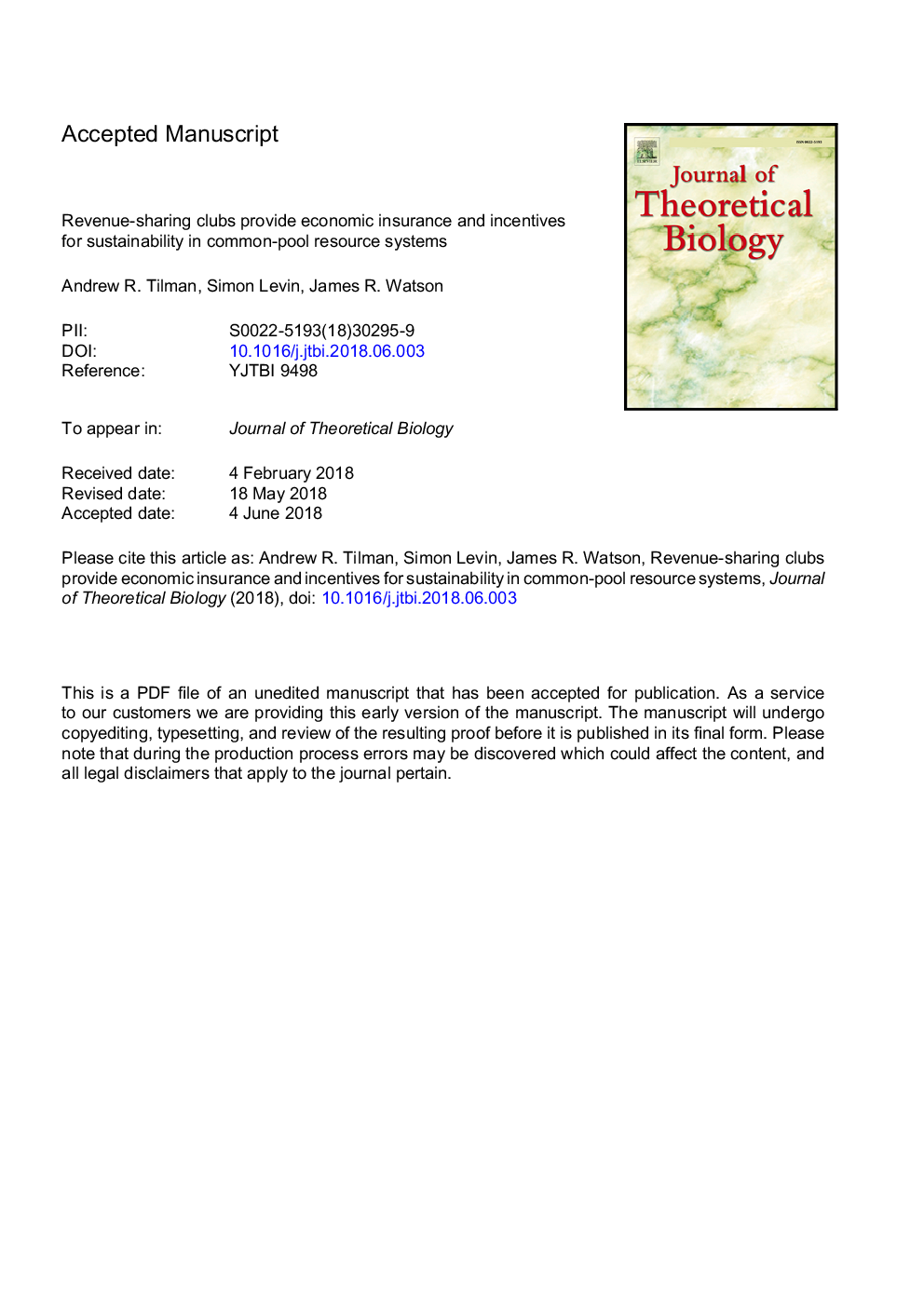| Article ID | Journal | Published Year | Pages | File Type |
|---|---|---|---|---|
| 8876564 | Journal of Theoretical Biology | 2018 | 42 Pages |
Abstract
Harvesting behaviors of natural resource users, such as farmers, fishermen and aquaculturists, are shaped by season-to-season and day-to-day variability, or in other words risk. Here, we explore how risk-mitigation strategies can lead to sustainable use and improved management of common-pool natural resources. Over-exploitation of unmanaged natural resources, which lowers their long-term productivity, is a central challenge facing societies. While effective top-down management is a possible solution, it is not available if the resource is outside the jurisdictional bounds of any management entity, or if existing institutions cannot effectively impose sustainable-use rules. Under these conditions, alternative approaches to natural resource governance are required. Here, we study revenue-sharing clubs as a mechanism by which resource users can mitigate their income volatility and importantly, as a co-benefit, are also incentivized to reduce their effort, leading to reduced over-exploitation and improved resource governance. We use game theoretic analyses and agent-based modeling to determine the conditions in which revenue-sharing can be beneficial for resource management as well as resource users. We find that revenue-sharing agreements can emerge and lead to improvements in resource management when there is large variability in production/revenue and when this variability is uncorrelated across members of the revenue-sharing club. Further, we show that if members of the revenue-sharing collective can sell their product at a price premium, then the range of ecological and economic conditions under which revenue-sharing can be a tool for management greatly expands. These results have implications for the design of bottom-up management, where resource users themselves are incentivized to operate in ecologically sustainable and economically advantageous ways.
Keywords
Related Topics
Life Sciences
Agricultural and Biological Sciences
Agricultural and Biological Sciences (General)
Authors
Andrew R. Tilman, Simon Levin, James R. Watson,
